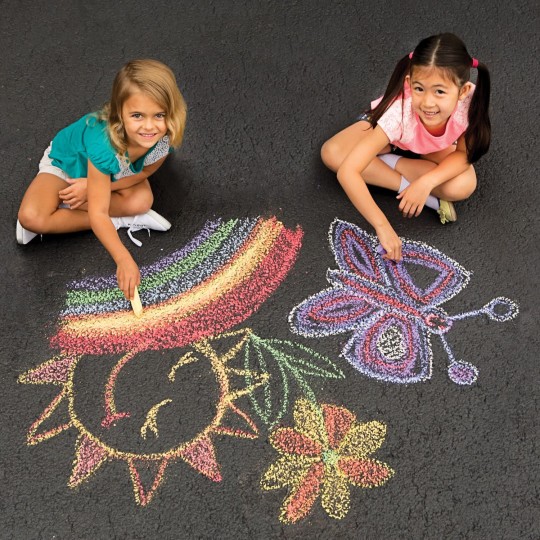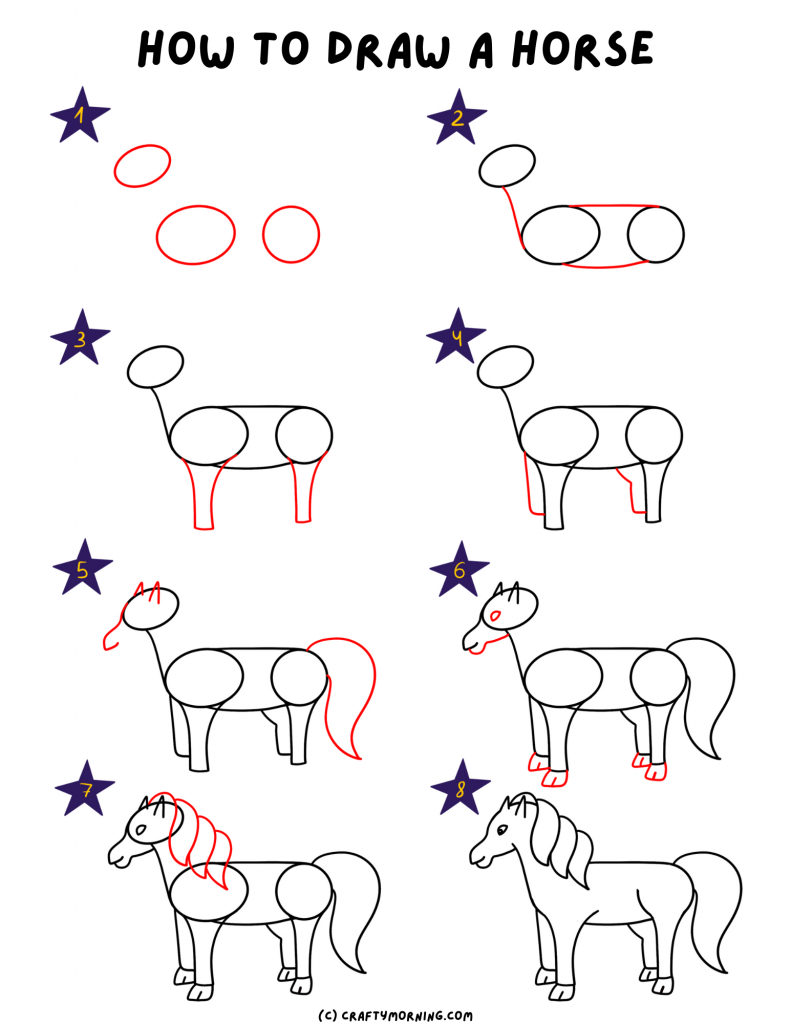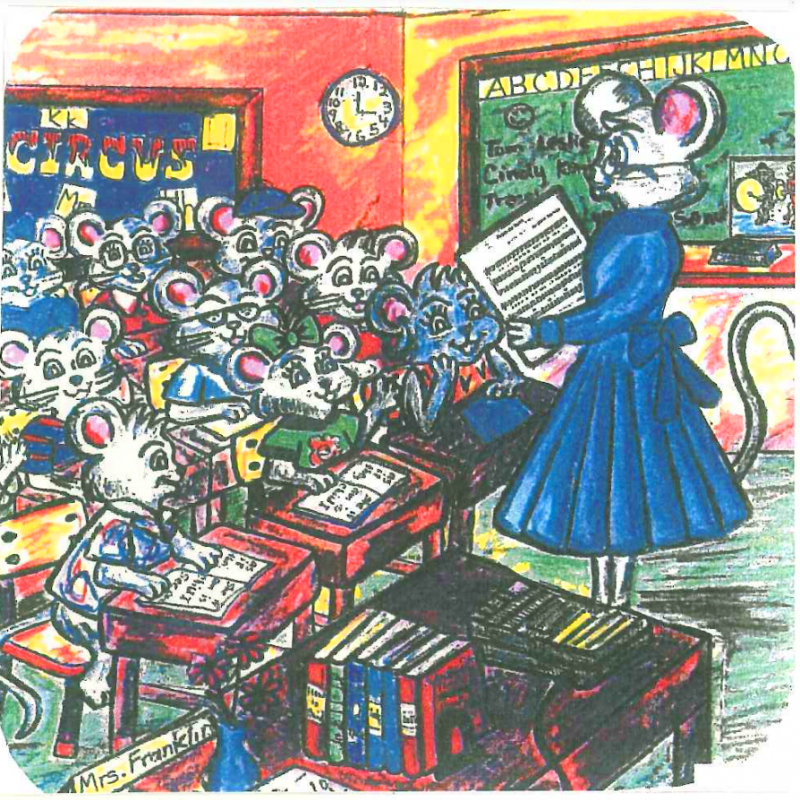Your cart is currently empty!

Teacher: Art: Ms. Erős




This Week in Art
Sidewalk Drawing
Grades: K-6th
Lesson Plan Objectives: Development of the creative process by doing artistic drawings in a new way and development of fine and gross motor skills.
Materials Needed: Sidewalk or outdoor chalk and lots of sidewalk.
Lesson Procedure: Give the student the chalk and let them draw whatever they choose on the sidewalk.

Result:
Writing and drawing with chalk helps children work on fine motor skills such as developing an appropriate pencil grasp pattern, eye hand coordination, fine motor control, manipulation and increasing hand strength.
Last Project: Horses
Learning Shapes / Biology :
Drawing Horses
Do you enjoy learning about animals and drawing? This is the week class for you! In this class, I will teach the students many interesting facts about the horse! Learners will find out fun things about these amazing animals, such as why horses neigh, how to find out how old they are, how to take care of horses, how much they sleep, how they communicate, facts about their babies, and more!
I will also lead the students in a simple directed drawing of a horse throughout class to keep them engaged and having fun learning. No art experience is required! I will lead the students step-by-step throughout the class to make their very own horse, while learning about it!

Supply List
Learners who come to class use:
- blank piece of paper
- pencil to draw with
- something to color with (crayons, markers, or colored pencils)

Past Projects
Year: 2023-Week Jan 22-27
Year: 2023-Week Jan 16-20
Year: 2023-Week Jan 09-13
Year: 2022-Week Dec 19-23
Year: 2022-Week Dec 12-16
Year: 2022-Week Dec 05-09
It was not long ago that arts education in schools was thought to be a luxury, and arts classes were cut from the curriculum to make room for more time to prepare for standardized tests. Currently, there is more and more information available that shows how crucial arts integration is to creating well-rounded, well-prepared learners and leaders. Articles with titles such as “Teachers are using theater and dance to teach math — and it’s working,” and “Arts-Based Education Will Power the Creative Economy” discuss the theory and research behind such claims..
⭐ A report by Americans for the Arts states that young people who participate regularly in the arts (three hours a day on three days each week through one full year) are four times more likely to be recognized for academic achievement, to participate in a math and science fair, or to win an award for writing an essay or poem than children who do not participate.
Art Projects:
- Week 01-02:
- Week 03-04:
- Week 05-06: The Shape of Animals
- Week 07-08:
- Week 09-10:
- Week 11-12:
- Week 13-14: No School
- Week 15-16: Space and Shape: Balloon
- Week 17-18: No Class
- Week 19-21: Drawing Horses
- Week 23-24: No Class
- Week 19-21: Sidewalk Art (Chalk)
- Week 25-26:
Important Art Concept:
- Week 01-02:
- Week 03-04:
- Week 05-06:
- Week 07-08:
- Week 09-10:
- Week 11-12: Lines, Shapes
- Week 13-14: Color
- Week 15-16: Lines, Shapes
First Grade
Students will be introduced to a vocabulary that will enable them to begin to develop the skills necessary to describe various artworks. Students will learn how to use lines, shapes and color to convey meaning. They will explore a variety of subject matters and become keenly aware of their cultural and environmental influences. First grade artists will focus on Asian and American artists and their works.
Second Grade
Students will build on skills acquired in first grade as they learn new skills and techniques with an emphasis on the elements of art focusing on texture and shape. Students will have introductory and developmental experiences in printmaking, drawing, painting, three dimensional craft processes, art history, and art criticism. Students will learn to differentiate among the functional and decorative arts of European American and Native American craftspeople. Students will expand their art vocabulary enabling them to extend their descriptive language.
Third Grade
Students will continue to develop knowledge and skills that will encourage a deeper understanding of art history, production, criticism and aesthetics. The design elements of color, value, shape and form will be explored. Students will be given the opportunity to practice various two and three dimensional media techniques to express ideas. They will learn how to recognize and create spatial relationships in artwork. While students will learn how to use these design elements in their own work, the students will also learn how to formulate a subjective and/or objective statement, and how to provide specific reasons to support such statements. Students will be involved in art history activities which will integrate their study of the Egyptian, Greek and Roman art with their Social Studies units.
Fourth Grade
Students will continue to develop the knowledge and skills needed to produce more advanced and successful work in Art. Emphasis will be placed upon the development of critical and artistic skills emphasizing the elements of space, form, and color. Complex color systems will be investigated, as well as systems of perspective. Specific drawing techniques in pastels will be taught. Students will also explore the use of visual symbols within artworks while expanding their artistic vocabulary. Students will explore the role of the artist as art historian, and study the art history of the Medieval and Renaissance worlds. Additionally, students will be involved in art history activities which will integrate their study of the Southwest art and artists with their Social Studies unit on Arizona.
Fifth and Sixth Grade
Students will build upon the knowledge and skills acquired in the first through fourth grades as they learn new skills and techniques with an emphasis upon an understanding of color, value, and perspective. Students will have developmental experiences in drawing, painting, three-dimensional form, art history, and art criticism. Specific drawing and painting techniques will be taught in order to aid the students to attain a certain degree of realism in their work, and to depict ideas and emotions. Basic color theory will be emphasized in order to help students o achieve desired color effects. Values will be emphasized in order to help students understand the role that lighting plays in our perception of objects. Students will also explore one-point perspective concepts in an attempt to begin to achieve realistic representations of three-dimensional space in two dimensions. Students will explore the art of the 18th and 19th Centuries in relation to their studies of studio techniques. Students will also explore the processes that art historians use to attribute works of art to specific artists and/or cultures. Finally, students will become involved in the initial phases of writing about artworks (art criticism) employing the same steps as the art critic.
Other Electives:

Band / Instruments
- Grade 3-6:
- M-W
- 8-8:45 am
- Jazz & Pop:
- Th
- 8-8:45 am
- Music: Instruments
- Grade 3 Tuesday:
- 9-9:45am
- Grade 4 Tuesday:
- 10-10:45am
- Grade 3 Tuesday
- 10:45-11:30am
- Grade 3 Tuesday:
Choirs: After lunch
Music / Kodály:
- Kindergarten:
- Monday
- Tuesday
- Grade 1:
- Monday
- Wednesday
- Grade 2:
- Tuesday
- Wednesday
- Grade 3:
- Thursday
- Grade 4:
- Thursday
- Grade 5-6:
- Thursday
Visual Arts: Wednesday
- Kindergarten:
- Wednesday
- Grade 1:
- Wednesday
- Grade 2:
- Wednesday
- Grade 3:
- Wednesday
- Grade 4:
- Wednesday
- Grade 5-6:
- Wednesday
Physical Education:
- Kindergarten: Monday
- Grade 1: Monday
- Grade 2: Monday
- Grade 3: Monday
- Grade 4: Monday
- Grade 5-6: Monday
- Basketball: M-W
⭐ “Think and Wonder, Wonder and Think”
~ Dr. Seuss


